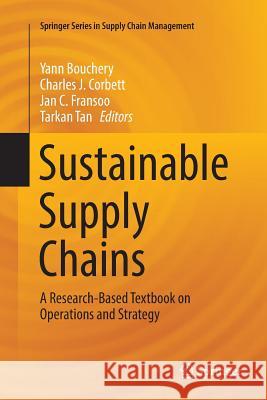Sustainable Supply Chains: A Research-Based Textbook on Operations and Strategy » książka
topmenu
Sustainable Supply Chains: A Research-Based Textbook on Operations and Strategy
ISBN-13: 9783319806556 / Angielski / Miękka / 2018 / 517 str.
Kategorie:
Kategorie BISAC:
Wydawca:
Springer
Seria wydawnicza:
Język:
Angielski
ISBN-13:
9783319806556
Rok wydania:
2018
Wydanie:
Softcover Repri
Ilość stron:
517
Waga:
0.74 kg
Wymiary:
23.39 x 15.6 x 2.74
Oprawa:
Miękka
Wolumenów:
01
Dodatkowe informacje:
Wydanie ilustrowane











